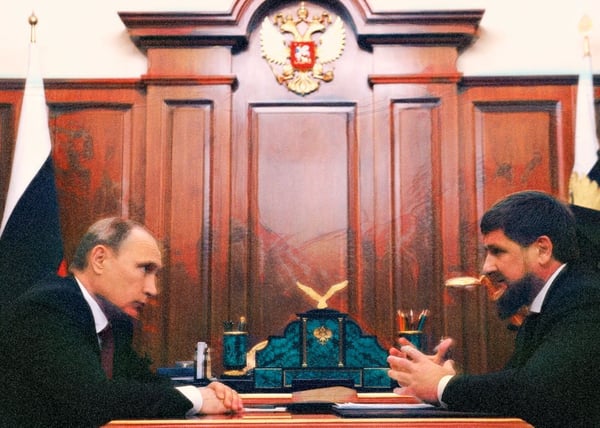How can this be in Europe?
You read us, so you know we regularly cover the South Caucasus: Armenia, Azerbaijan, and Georgia. But it’s high time we talked about the North: places like Chechnya, Dagestan, and Ingushetia.
Geographically, these republics are in Europe, but because they’re part of Russia, the federation of 21 republics, European institutions are out of their reach, and they've been mostly ignored in Brussels and beyond.
The people who live here aren’t Russian – neither culturally, linguistically, nor historically. The North Caucasus, which fell under Russian rule in the 18th-19th centuries, is home to around 10 million people, with dozens of ethnic groups living there: Chechens, Avars, Ingush, Circassians, to name a few.
Most are Muslim, and many have a long, bitter history of resisting Russian rule – from 19th-century imperial wars to Stalin’s mass deportations, and the Chechen wars of the 1990s and early 2000s.
That uneasy relationship with Moscow shapes the region’s present too. Russia gets the soldiers to fuel its war against Ukraine mainly from ethnic minority regions. According to unofficial estimates, around a third of fatalities and up to half of casualties are ethnic minorities, despite minorities only accounting for 20% of Russia's population. The highest number of confirmed deaths per capita in Russia is in the Dagestan region: over 1,200 Dagestani soldiers were killed by mid-2023 – likely to be much more now.
The death toll in the rest of the North-Caucasian republics is harder to verify because of smaller populations, censorship or contradictory reports. But leaks and local reports suggest thousands of casualties, including conscripts and so-called volunteers pressured into signing contracts. Many of these soldiers were poor, jobless, and had little choice.
For many, joining the army was the only way to support their families. There were brief protests across the region after the 2022 mobilisation. However, they were quickly crushed by riot police and local authorities through mass detentions, violence, and economic intimidation. Fear and repression did the rest.
In the North Caucasus, the battlefield isn’t just in Ukraine. Another battle is also taking place in prison cells, secret camps, and the homes of those who’ve dared to challenge the imposed status quo – the queer people, targeted simply for existing.
Even before the war, LGBTQ+ people in Chechnya faced terrifying levels of state violence. Since 2017, the state has abducted, tortured, and even murdered dozens in secret detention sites, often described as “concentration camps”. Victims are outed to families, publicly shamed, or simply disappear. The mastermind behind it all? Ramzan Kadyrov – Chechnya’s long-standing ruler and one of Vladimir Putin’s most loyal colonels.
Now, new investigations show that queer men from Chechnya are being forcibly mobilised too – both for fight and abuse. According to OC Media, gay men have been used as sex slaves within Chechen armed groups. And as GCN reports, some of these men are being blackmailed into military service under threat of exposure or imprisonment.
The North Caucasus is also a hotspot for resurgent militant activities. In May 2025 alone, six people were killed in armed and terrorist attacks. With a history of Islamist insurgency, especially in republics like Dagestan and Chechnya, these networks are reawakening amid broader instability in Russia and the Middle East.
In June 2024, Islamist militants launched deadly attacks on churches and synagogues in Dagestan, killing at least 21 civilians and police officers. Depending on the sources, since then, a total of 93 incidents were recorded, resulting in between 82 and 122 casualties. Moscow later blamed external forces – including Ukraine and NATO – for the terrorist attacks in the North Caucasus.
At the crossroads of empire, violence, and resistance, the region remains Europe’s blind spot. Its people are paying the price for Russia’s war, Moscow’s repression, and the world’s silence. Over the next weeks, we’ll take you inside the republics too often left out of the full story.


